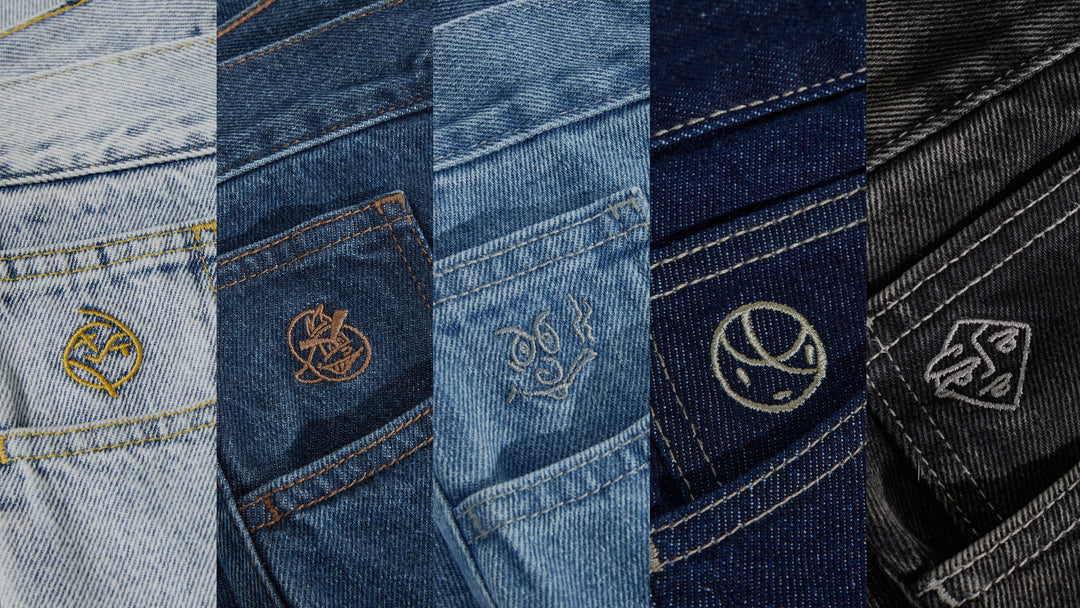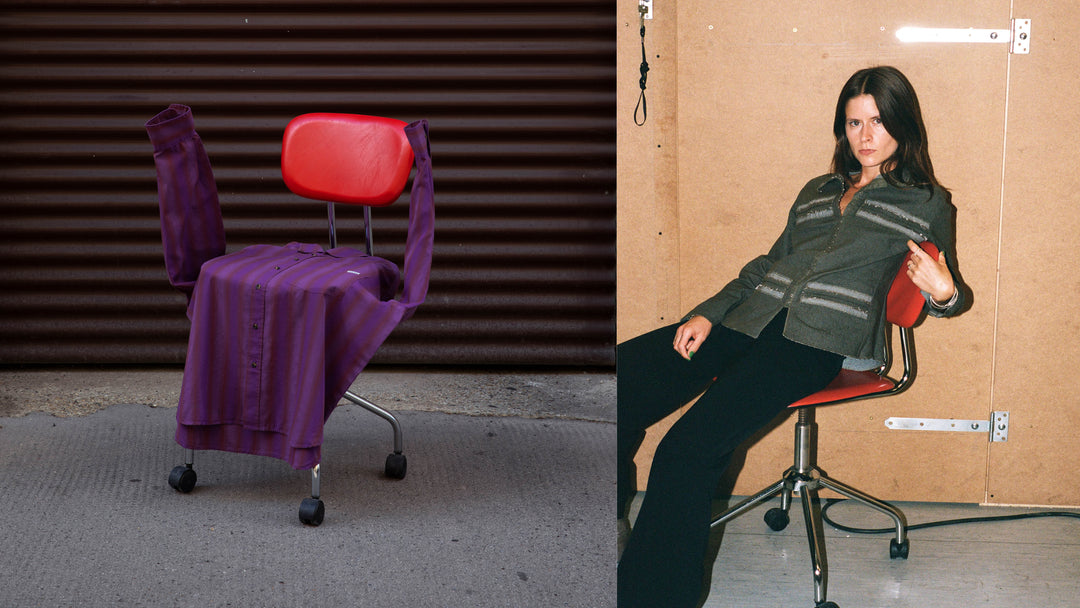While looking for interesting people to star in our Spring 25 campaign, our Creative Director Sirus f Gahan found street artist Lenny Hoops on Venice Beach. Besides his contagious energy, the singer, actor and former nuclear submarine driver has lots of stories and life lessons to share.
Hey Lenny! Where are you from and what are you doing for a living?
Well, I grew up in Savannah, Georgia. In the early sixties, I spent maybe about nine years in the Navy on a submarine. Then I started doing stand-up comedy on TV shows. And now I'm singing. I sing with a circus. I sing on the street. I MC shows for a human cannonball. I do street fairs, festivals, things of that nature, live performances. I really like live performances, because each one is different every day and different people from all walks of life and different parts of the world are around. The fun part about it is, that they come to have fun. They make me feel good and I try to make them feel good. It's always some magic that's going to happen when you're performing live.
Watching your videos, it seems like you’re interacting a lot with people during your
performances instead of strictly performing a song from beginning to end.
I have to break the third wall. I mean, I just can't have 10,000 people walk past me and just smile. I gotta ask them how they are doing, where they from, you know what I mean? Take a picture with them. I just gotta interact with them. And that comes from being in a stand-up comedy background. And it comes from my parents, too. They're always interacting with people, making people laugh, having fun with people, just not being a snob.
Some things are not made for everybody.They have people in the circus that they'll get in the ring with eight tigers. But you should give them a microphone to talk to 2,000 people, they freak out. They couldn't do it. Maybe it could be a personality thing or maybe they don't, maybe they're scared of that. And if you can bring many elements to it and street performing, it's so easy, because there are so many people walking by. Small kids, old kids, young, white, black, straight, gay, all of that. I want to entertain them all.
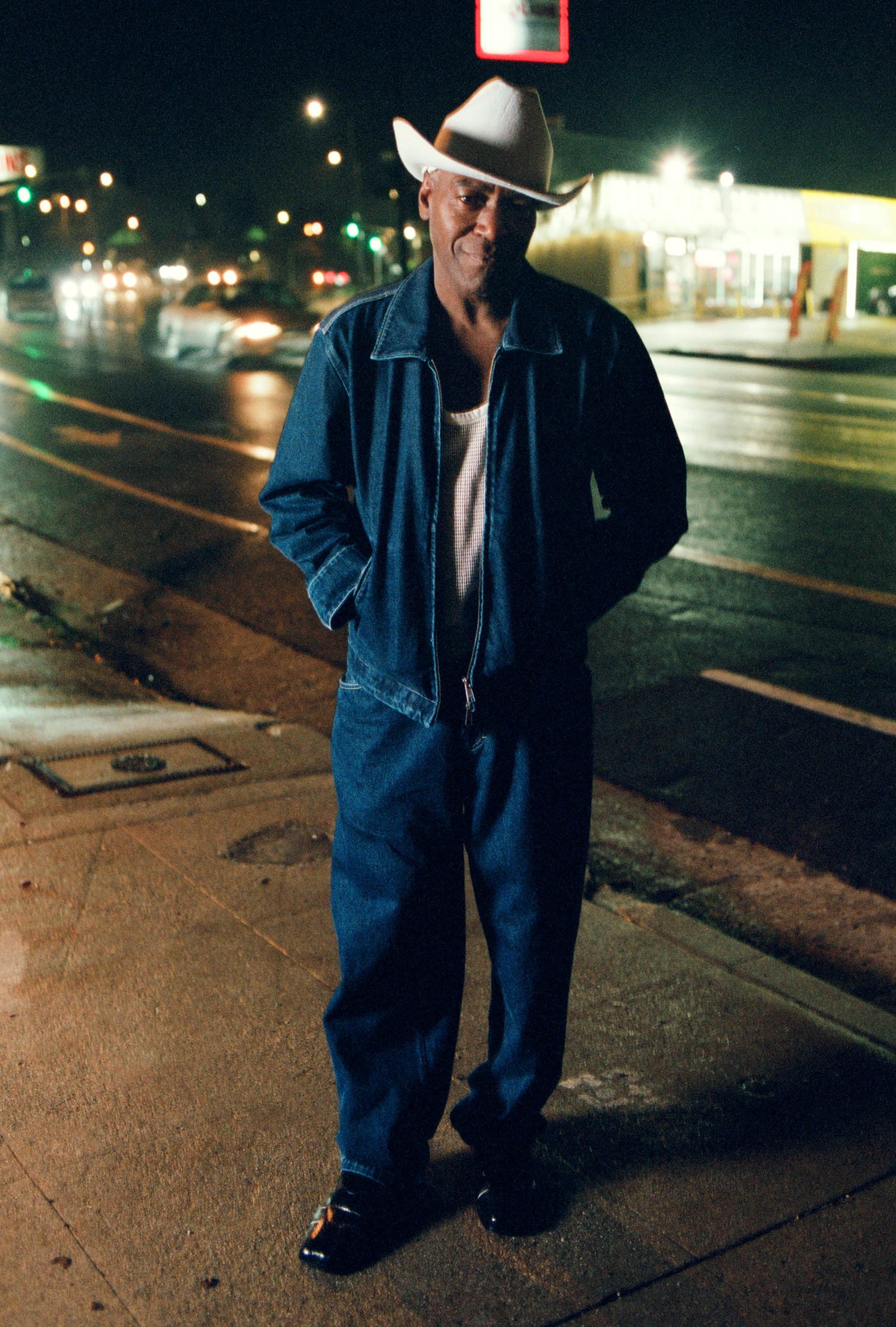
As you say, you started with stand-up comedy. When and where did that happen?
I actually did my first show in high school, and they asked me to MC a talent show. So that was in 1979. I was in the 12th grade. I was entertaining my peers, all these high school kids, and they were brutal, you know. So you have to be real, crass with them. You got to hit them first. That's how you win the fight. They'll eat your life every time. Kids can be brutal. You have to be ready [laughs].
After that, I joined the Navy and then I started doing more stand-up at the local comedy clubs in Charleston. Then I sent out a tape to Star Search and I had an audition for Star Search. I got on a showtime at the Apollo Def Comedy Jam and all of the shows that were back in the 90s. I was also working at Rodney Dangerfield’s, the old comedian with the big eyes. He did a lot of movies, Caddyshack and stuff like that. He's just great. He had a club there, so I MC’d his club for maybe 13 years.
And then another passion came up where I started designing jeans for a company. So, I was doing three things, a period of maybe seven to eight years and stand-up kind of went to the side and I started doing more clothes. And when the clothes went away, I don't know if I went away, but I had to reinvent myself. With that, street performing started in New York one night.
So you were living in NYC at some point?
Oh yeah. I lived in New York City. I got there maybe about 1986 or 1987. And I was on the Apollo, Def Comedy Jam, then the TV show Amateur Night. It just took off from there. All the way up until maybe 92, 93, I was doing TV stand-up.
So you were a nationally broadcasted entertainer?
Yes. Def Jam, Apollo, the Joan London Show, the Geraldo Rivera Show, BET comic view. The last one still gets streamed. So sometimes Netflix sends me a check for $6. They sent it to my mama’s house.
“you have to treat it with a passion. I would go to work for somebody else nine to five and give them all my passion. Or I would go to work for myself and give myself the full five hours of passion and bring home what I bring home.“
How is it different from working in that TV production world from the 80s to performing live in the streets on your own now?
Well, I kind of like being on my own. When you're independent, you create more opportunities for yourself, and nobody can really make the decision for you. And you can't blame anyone. Everything is on you.
So, I go on the stage and let the magic happen. I need the audience and I need that interaction because that's where the magic comes from. The magic comes from them. The other day I was out performing and there was a young autistic girl and she came up and grabbed the microphone, and man, she took the show over. It was so natural. She was just bouncing and singing and the crowd gathered, and you just give her the microphone and the magic just took place right there. You don't have to be the center of the magic. Just be around in the magic, you know?
That's why I like going out on the street performing. I'll do TV production, I'll go on audition for plays, commercial auditions and stuff like that. It's money. But what can money do for you? It pays your bills and everything. But if you don't know somebody and they don't enjoy your entertainment, your art or your company or what, what good are we? We’re just selfish in ourselves. We can't live in this world ourselves. We got to interact with people. You got to say good morning. You got to tell somebody to kiss your ass and get the hell out your face. You know what I mean? You got to interact with people. Hey, how you’re doing? Nice dress. You got to interact with people. I mean, and even if you have the money spending and just alone on your own, it's just a tool. It's not really fun. It's just a tool.
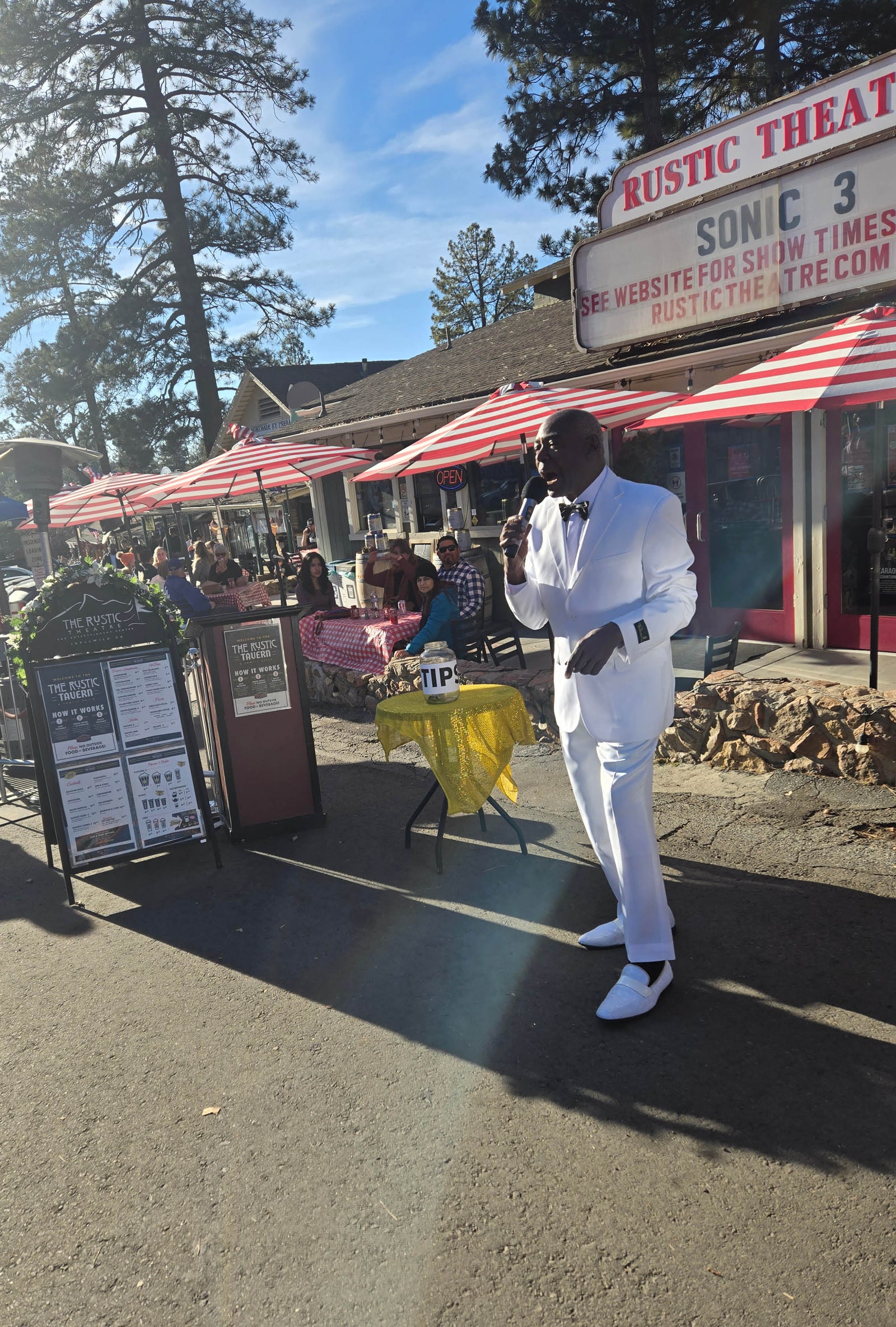
Planned productions don’t have too much room for those kinds of spontaneous and free interactions. So, the stuff you do is much more open to it.
I did some small independent films. Actually, the director was allowing me to ad lib and kind of go off the script and he kept it in. Sometimes you can bring things alive that they didn't see yet. Because they have their imagination, but it's not alive until someone puts life into it.
For how long have you been living in Santa Monica now?
I've been living here in California since 2010 I would say. And then before that it was all New York. And if people ask me, which one do I like the best? Don’t play me like that, they're both the best. You can't really compare them. I can't say that New York is better than California, or California tips better than NYC. What happens is that I see people in Central Park when I'm performing and then I'll fly back to California and they'll see me performing on the Santa Monica Pier. That's the actual beauty of New York and LA. The people travel all over, back and forth.
Sirus told me that the first interaction between you both was on the Venice Beach?
So, I was out singing and wearing my white suit, doing my thing. He was over to my right and he waited till I got done with a song. And he came over and introduced himself and I'm glad he did. He asked me if I do any acting and I told him a little bit and he said, “well, I'm from England and I'm here to do a project. I've been looking around for some street artists. I like the way you interact with people and would like to know if you'd be interested in casting for our small film for the company.” I was down for it, obviously.
We had a good lunch a couple of days later. He sent me the script for the shoot and picked me up. It was great, man. I met some great people on the set. I was happy to be a part of it. As you can see, I'm wearing my shirt now.
Did you have any connection to the skate scene before?
A lot of the skaters, when I'm on the boardwalk performing, they come up and they do their tricks. When I got to California, it was just big. I just started paying attention to all of the skateboards and the clothes and everything. I was wearing some loose clothes too from designing jeans with my partner years ago. I understood the whole fashion thing of it. Every fashion connects with a certain type of music and every music attached to a certain type of generation. Some things come full circle. Skating will never end. Clothing will never end.
And if we are like talking about all your work, what kind of stuff influenced you on your way there? Are there life happenings, key moments or role models you were looking up to as a teenager when you started all that?
I was telling a friend today. I remember as a boy, I was standing in front of my mother's mirror, fixing a tie. I might've been six years old. And she came in the room and said, “what are you doing?” And I said, “I'm going to be a singer like Lou Rawls.”
I also went to see Little Richard. Rest in peace. The king of Rock and Roll. I went to see him one night in New York, and man, he was glittered head to toe. He had jokes. He introduced the band. Everything he said was funny. His show was off the chain. I just loved it. And then the next day I could not go out and perform because I felt big. I said, “Damn. I gotta go out. I gotta be like that. I gotta say things. I gotta do things. My shoes gotta be glittered. I gotta entertain the people.” And two days later I got myself some shoes. I glittered them up and I was out in the park. Little Richard was one of my heroes.
And a key moment was when I was about maybe nine or ten and my mother took me to a concert to see James Brown and The Jackson Five. So I saw Michael Jackson and James Brown in the same night, and I could not go to sleep when I got home. I was sliding on the floor, jumping off the sofa, doing the robot, everything that I saw, and I thought I could do it. And maybe that's why I'm in this thing they call entertainment now, because of watching James Brown and Michael Jackson one night. I'm quite sure many kids saw that around the country because they went on tour together. It was a hell of a show.
It's like parents taking their kids to see Taylor Swift nowadays.I went to a Taylor Swift concert. I was performing outside at SoFi.Eight nights, 80,000 people that's just going in and they are hanging out. Everybody came out with the cowboy hat glitter. It was fantastic.
“my advice to the younger performers is to look good when you go out there. Don't go out there for the money. Dress yourself up, clean yourself up and always use the bathroom before you start performing.“
So, would you say you’ve become a Swiftie?
I'm a Swiftie. That's the thing. You can just say, it hasn't grown on me yet. But it can grow on you. Art can grow on you. Music can grow on you. She touches a lot of the people with the music. She brings a show. She’s dancing, changing costumes, entertaining the audience. All that shit that's great. You know like the Superbowl halftime shows now. It's building those great moments of entertainment music history.
What's your favorite halftime show?
I would have to say the Prince one, and James Brown.
I also saw that you're pretty active on social media and putting out the coverage of your performances.
Yes, I was making music videos during the pandemic. We didn't have social media back then. Now it's a tool. But I'm even thinking now since I did the campaign, I'm getting more and more likes and followers, and people recognize me at the pier. It’s nice that it comes from a digital world, but you are getting back something real, too.
I don't really know much about the street artist scene. If you would say I can call it a scene or subculture, are there people claiming spots on specific days or stuff like that? Tell us how it is out there?
I mean you can't really claim a spot. It’s city property. It's a free street out there, but some cities have permits like here in Santa Monica. We have a permit for the year, so we must go, pay and sign up to perform on the pier, the promenade at Venice Beach.
In New York City, I have a lifetime permit to play in the subway. It allows me to perform in certain stations and when the cops see it, they know that I'm in this program called Music Under New York. I perform at Times Square, the US Open or the Yankees stadium. But the beauty of New York is that you can still play in the subway when it's raining and cold. But here in LA, if it's raining, there's not really a place to play.
How did you get that permit? It seems like this is the golden ticket for street artists in New York. Did you have to apply for it?
Yes, you have to send in a tape, and they take 20 people a year, only. They have auditions where you come in and perform before a panel of maybe 15 judges. Then they'll send you a letter two weeks later to say if you're in the program or not. Once you're in the program, you're in it for life.
Is there like a code between you and some other artists?
Well, there is a code where you shouldn't perform right next to another musical artist, but some don't follow. And there are rules on the street and then they have rules with
the permit, like you do four hours and just somebody else takes over.
I also think there are lots of different ideas out in this world about how profitable
performing on the streets is. Could you bring some light into that topic?
Once you learn to play an instrument, you'll never be broke. That’s what I say. It is a real job. And you have to treat it as such, and you have to treat it with a passion. I would go to work for somebody else nine to five and give them all my passion. Or I would go to work for myself and give myself the full five hours of passion and bring home what I bring home. I can make myself a ‘thousandaire’. If some people go out and they say, “oh I gotta make money, I gotta get some out”, and that's all they concentrate on, you don't get shit. You forget about really putting on a show. If you treat it right, you will be fine.
Talking about other passions: what are all those paintings in the background?
I started painting during the pandemic, but I was painting as a kid. My father had a construction company, I would paint houses and walls. So, he told me I was a good painter.
I started to get the canvas and I would paint at night. I found a whole other passion. No music, no radio, just the strokes of the brush and the water dabbling and seeing the creation. One day,I'd like to see some of this artwork in the children’s museum, children’s hospitals, stuff like that.
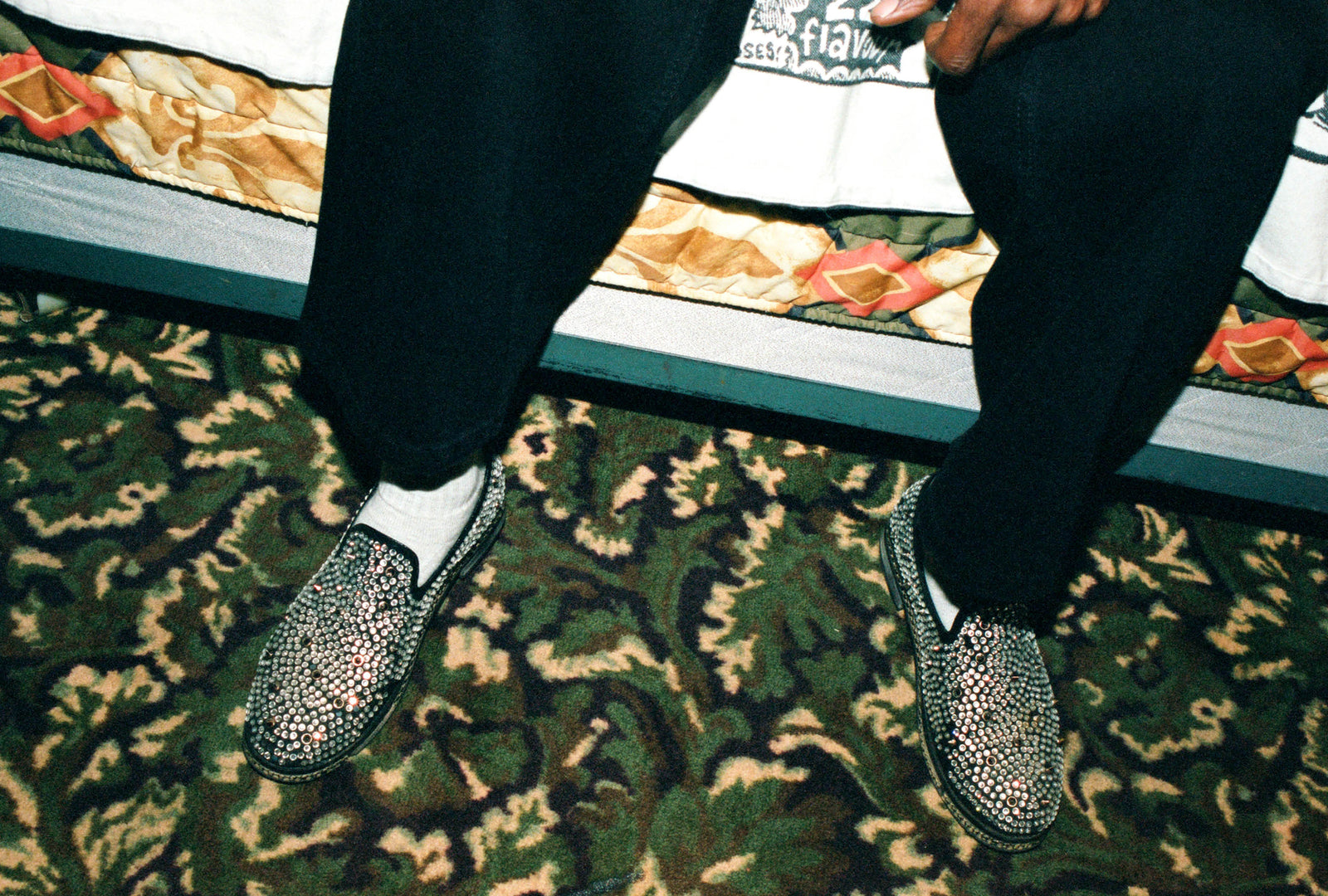
“I gotta go out. I gotta be like that. I gotta say things. I gotta do things. My shoes gotta be glittered. I gotta entertain the people.”
Many people focus on one thing or one passion. How do you manage to follow so many?
Everything is creating its own energy and feelings. I think this is what’s the beauty in that kind of thing. Nothing can replace anything.
I think we have to make a little digression from art to your past in the Navy. You've driven nuclear submarines, right?
I spent nine years driving a submarine. 18 hours out to sea before you’d go under and then 18 hours back after you came up again. You gotta sit in the chair 18 hours in one journey and everybody's up. Nobody's sleeping doing that. It’s safe, but it’s dangerous.
So what were the main lessons for you from that time?
Zero tolerance of the bullshit. So, zero tolerance means that no water can come in the submarine. Otherwise, you are fucked up. Yeah? Zero. Can we say that one more time? Zero tolerance! That's a learning for nowadays.
Also, when I was in the circus, I met this gentleman. He was a human cannonball. He hired me to shoot him out of a cannon, because I was on the submarine for so long. How do you pick your attention to detail and doing it precisely each time? Don’t let it become a routine. He's depending on me to get in that cannon, line his ass up, hook him up, put the angle right, MC the show with the microphone, talk to him and shoot him out at the right moment. In time, every time. His life is in my hands.
We talked about passion before. As someone who has experience from doing so many different things in life, could you give any advice to the younger generation, and all those who are struggling finding their passion?
You should really know your passions by the time you may be like, eight or nine years old. Your passions are there, your parents should recognize them. If you see a kid that's constantly writing on the walls and scribbling on the wall, that’s the artist.If you see a kid who's fixing cars, you can see who they are, who they'll grow up to be, if you pay attention. But my advice to the younger ones is that, yes, your passion is one thing, but you need to find that purpose too. And my advice to the younger performers is to look good when you go out there. Don't go out there for the money. Dress yourself up, clean yourself up and always use the bathroom before you start performing.




